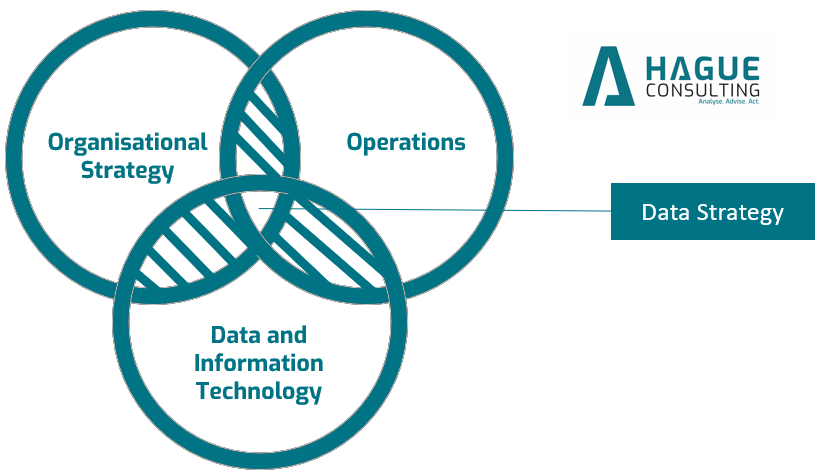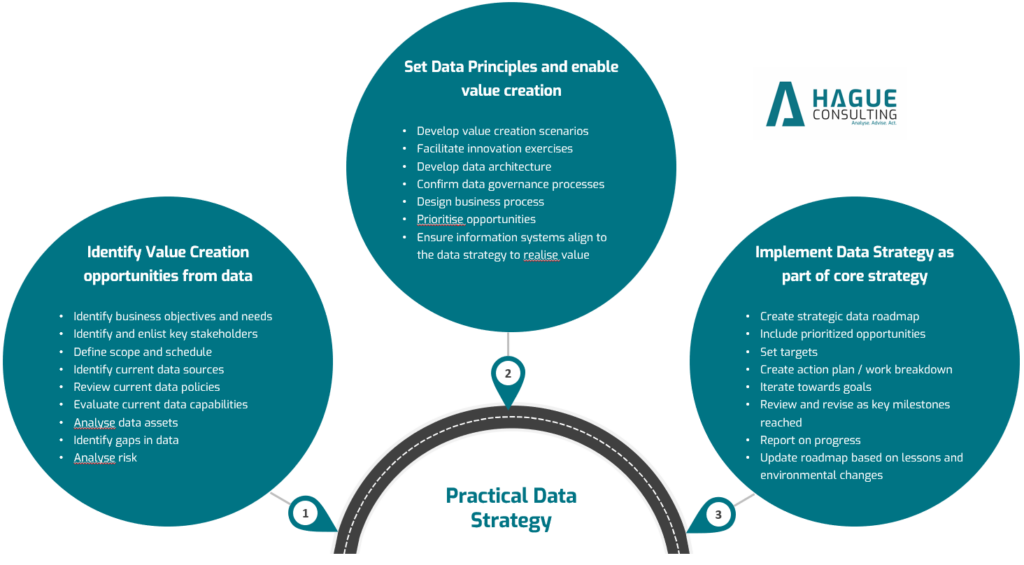Why a Data Strategy is good business

All organisations need a strategy to achieve and maintain a sustainable competitive advantage. Data collection, analysis, and derivation of insights is critical to creating value, and thus critical to strategy. There are many excellent publications and models on data strategy. Some of the best include:
- DAMA-DMBOK2
- Data Strategy: How to Profit from a World of Big Data, Analytics and Artificial Intelligence
- Data and Analytics Strategy for Business
For most executives, data governance will not be a core skill. Here are three simple steps to creating and implementing a practical organisational data strategy based on ensuring strategic success rather than getting into the weeds of technical data governance:
Identify Value Creation Opportunities
Gather a range of people from different functions and disciplines within your organisation to identify:
- Data they wish they had to support decision-making
- Data that is difficult or time-consuming to prepare
- Examples of other organisations using data in better ways
- Perspectives we have not considered (e.g., from staff, existing or prospective customers)
- Process improvement opportunities
- Potential new products and services
Establish Data Principles and Enable Value Creation
According to Ghosh (2023), the guiding principles of a data strategy include:
- Streamlining data acquisition processes
- Making data easily accessible and shareable
- Eliminating data silos
- Integrating disparate data
- Developing consistent data usage and management goals
- Setting up clear guidelines for data analysis
Capture data once and use it many times. Make data accessible using common tools so that teams can collaborate to create value. Good data governance provides quality data that everyone can use and rely upon. Align new information systems projects to these data principles to ensure no new silos of information are created.
If an organisation is serious about enabling value creation from data, it needs to integrate these steps into its overall strategy. Data strategy contributes to organisational strategy, so if you want to realise the value from using data well, then there are a few more things you need to do:
- Develop value creation scenarios
- Capture ideas for value creation from other internal processes and activities
- Facilitate innovation exercises
- Design business processes to collect and use data well
- Prioritise opportunities using your own criteria
- Ensure information systems align to the data strategy to realise value
Implement your Data Strategy
Some writers argue for a Chief Data Officer and a highly structured data governance regime across the enterprise. For large organisations, this approach may be useful or even essential. For other organisations, it may be difficult to agree on such a formal approach. It may be more realistic to integrate the core elements of data strategy into the overall operating model. In all cases, data strategy is an integral part of organisational strategy, not a standalone technical element of the business. At a high level, that would look something like this:

Phil Guerin, Consultant/Director, Hague Consulting Ltd. © Hague Consulting Ltd 2023
Share this on social media
